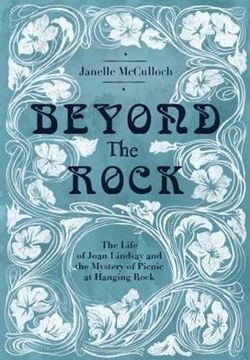In the winter of 1966, at sixty-nine years of age, Lady Joan Lindsay sat down and wrote a short novel about a group of upper-class schoolgirls from a prestigious ladies’ college who disappear while on a country picnic in the summer of 1900.
The result was Picnic at Hanging Rock, a literary mystery that has endured for half a century.
Beyond the Rock looks at not just the myth of Picnic and how it has become part of Australia’s culture, but also the story behind it. It examines Joan Lindsay’s enigmatic life, much of which she kept secret from the world, including her childhood, her complex marriage to Daryl Lindsay of the famous Lindsay family of artists, their enduring love and unconventional bohemian life, and her life at Mulberry Hill, the Lindsays’ own Arcadia deep in the Victorian countryside.
This is the story of one of Australia’s most famous novels, and the author who kept its secrets until she died.



Share This Book: